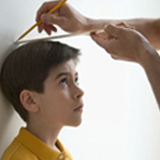Famous People with Name Hideo
Babynology >> Australian Baby Names >> Famous People with the Name Hideo
Famous People with Name Hideo
Hideo as First Name
Hideo Otake  Origin/Culture/Country: Japanese
Origin/Culture/Country: Japanese
Hideo Otake: a Japanese Go player.Otake was born in Kitakyushu City, Japan. He joined the legendary Kitani Minoru school when he was 9, and quickly rose up the ranks and turned professional when he was 14 in 1956. He would move swiftly, going up to 9 dan in 1970. He didn't have much patience, which could be seen as he would sometimes read comic books while he waited for his opponent to play.[citation needed]
Hideo Kodama  Origin/Culture/Country: Japanese
Origin/Culture/Country: Japanese
Hideo Kodama: was a politician and wartime cabinet minister in the Empire of Japan. He was the eldest son of famed Russo-Japanese War general Kodama Gentaro, and his wife was the daughter of Prime Minister Terauchi Masatake.Kodama was born in Yamaguchi prefecture. After graduating from the Law School of Tokyo Imperial University in 1900, he obtained a position at the Ministry of Finance), passing his career civil service examinations the same year. He served in a number of bureaucratic posts. During the Russo-Japanese War, he was assigned to the Imperial General Headquarters and sent to the Liaodong Peninsula (under Japanese occupation), where he served as liaison between the civilian government in Tokyo and the Japanese general armies in Manchuria
Hideo Hiraoka  Origin/Culture/Country: Japanese
Origin/Culture/Country: Japanese
Hideo Hiraoka: a Japanese politician of the Democratic Party of Japan, a member of the House of Representatives in the Diet (national legislature). A native of Iwakuni, Yamaguchi and graduate of the University of Tokyo he jointed the Ministry of Finance in 1976. After leaving the ministry, he was elected to the House of Representatives for the first time in 2000.
Hideo Jinpu  Origin/Culture/Country: Japanese
Origin/Culture/Country: Japanese
Hideo Jinpu: a Japanese politician of the Democratic Party of Japan, a member of the House of Representatives in the Diet (national legislature). A native of Koga, Ibaraki and graduate of Hosei University, he ran unsuccessfully for the assembly of Ibaraki Prefecture in 1994. He was elected to the House of Representatives for the first time in 2003.
Hideo Usui  Origin/Culture/Country: Japanese
Origin/Culture/Country: Japanese
Hideo Usui: a Japanese politician of the Liberal Democratic Party, a member of the House of Representatives in the Diet (national legislature). A native of Chiba, Chiba and graduate of Chuo University, he was elected for the first time in 1980 after an unsuccessful run in 1979.
Australian Names Categories
Top Baby Names
Parenting Tips
-
 Positive praising will encourage the child to do the good behavior. It will also boost the confidence, and the child will grow positively.
Positive praising will encourage the child to do the good behavior. It will also boost the confidence, and the child will grow positively. -
 If you find that the child is behaving wrong, try to find the reason behind it, instead of focusing on his attitude.
If you find that the child is behaving wrong, try to find the reason behind it, instead of focusing on his attitude. -
 As you know, your child the best, discuss the issues beforehand and try to get a result which is good and positive for your child.
As you know, your child the best, discuss the issues beforehand and try to get a result which is good and positive for your child.
Baby Photo Contest April, 2025
Vote For April, 2025
Parenting & Family Fun Quiz
Common Ways of Naming Babies
The most common originating source for naming babies have been after celebrities of the parents choice and after names of friends and relatives. One trend that has begun is naming babies....
English Names | Indian Names | Islamic Names | South American Names
African names | American names | Arabic names | Australian names Celtic names | English names French names | Gaelic names | German names | Greek names | Hebrew names | Hindu names Indonesian names | Iranian names | Irish names | Japanese names | Korean names | Latin names Malaysian names | Mexican names | Muslim names | Nigerian names | Portuguese names Romanian names | Russian names | Spanish names | Thai names | Vietnamese names
List of Australian baby names, Australian babies names, Australian baby names and meanings has been compiled from various resources. Please use this up to date list of Australian name as a reference to name your kid/child. This vast database of Australian names has been compiled from various references and suggestions provided by our web site users and resources partners. This information is developed to primarily serve as a reference. We are unable to respond on request for personalized assistance at the moment. Thank you for your support. Largest list of Australian baby names with meanings, numerology, popularity and comments.
© Copyright 2025 Babynology









